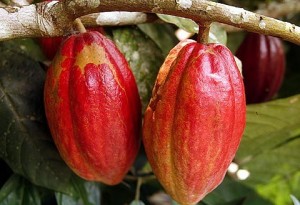Cocoa farmers urged to unite behind fight against child labour
 Cocoa farmers have been urged to unite behind the fight to end child labour in the cocoa production and supply chain.
Cocoa farmers have been urged to unite behind the fight to end child labour in the cocoa production and supply chain.
Mr. Kofi Opoku Mensah, Managing Director of Cocoa Merchants – Ghana, a licensed buying company, said they should actively support the effort by the government and other stakeholders to give adequate protection to children.
He said it was in the interest of everybody in the cocoa industry to work together to tackle the child labour menace to guarantee continued demand for Ghana’s cocoa beans on the international market.
He was speaking at a farmers’ durbar at Asokwa in the Adansi North District. The occasion was also used to pay premium to the company’s farmer-based groups in the area.
Mr. Mensah indicated that international concerns over child labour issues in the cocoa supply chain was growing and that it was important they combined their efforts to address it.
He said his company in partnership with Transmar, an international cocoa buying company and Nestle Ghana, had initiated a Child Labour Monitoring and Remedial System (CLMRS) to track and stamp-out the use of children as labourers in cocoa growing communities.
He asked that farmers engaged adults on their farms and to make sure that their children enrolled in school.
He encouraged them to see cocoa farming as business and adopt best management practices to increase crop yield and returns.
Mr. Alexander Gyedu, Corporate Social Responsibility Manager of Transmar, said as part of the premium payment, his company and Nestle Ghana, through the Cocoa Merchant, was providing 94 pruners to all the 94 societies alongside 21 mist blower machines to 21 selected societies.
This was meant to assist the farmers prune and spray their farms regularly against diseases.
It was also offering a premium of GHȼ12.00 per bag of certified cocoa delivered to the company by members of the societies.
Mr. Gyedu said his organization would continue to offer incentives that would boost the incomes of the farmers to enable them support the education of their children and fight poverty.
Source: GNA
